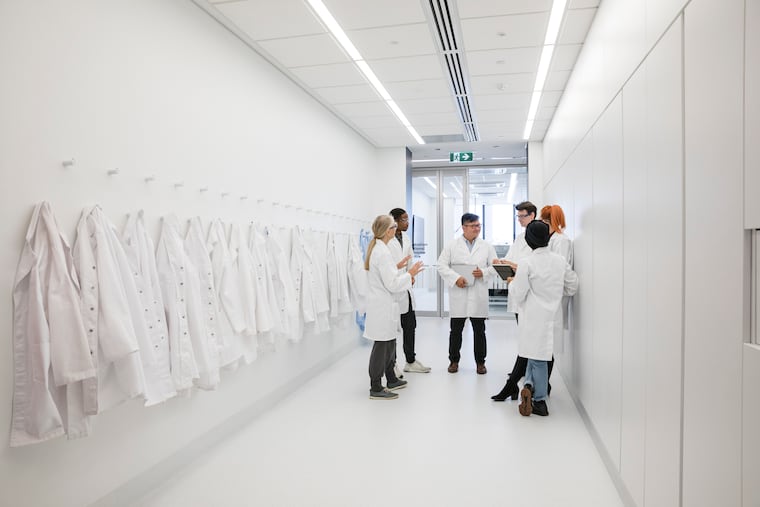As a medical student, he felt powerless. Now, Philly resident has learned to help others. | Expert Opinion
I promised myself that when I became a resident, I would remember to be different. But fast forward a few years later, I could never find the “right” time to do the things I vowed to do.

When I was a med student, I spent two weeks on a service where I thought I was doing a great job. After all, I had not received any negative feedback the entire time.
So, to my surprise, when the written evaluation from the supervising resident was harsh and negative, I was particularly upset. Not only was I caught off guard, but it was also too late then for me to change anything.
Many of my classmates who found themselves in similar situations were upset, too, but we all believed that there was very little we could do to rectify things then. Instead, I promised myself that when I became a resident, I would remember to be different.
Fast forward a few years and, many similar instances later, I found myself in the position of a resident working with students.
Time and time again, the thought entered my mind that I should be regularly providing feedback. But whenever I thought it was necessary, I kept postponing the conversation because it felt awkward to bring up something negative and personal, or the days were too hectic and we could never find the “right” time.
In these moments, I told myself it just was not feasible. Perhaps I will do it once I have more control over my schedule, and have an office, like an attending surgeon.
In the early 1970s, Martin Seligman, a psychologist at the University of Pennsylvania, conducted an enlightening set of experiments to study how dogs reacted to the delivery of painful electric shocks.
The dogs were placed in a cage, with one group given control over stopping the shocks and the other conditioned to believe these shocks were inescapable.
Then all of the groups were placed in a new setting, where they all had the option to escape. All they had to do was to walk out of the cage.
While most dogs did exactly that, some of the dogs surprisingly did not. Instead they laid down and whimpered, apparently believing that the shocks were inescapable.
Seligman coined this concept “learned helplessness” — a perception of futility that remains even after the initial conditions have lifted.
I think all of us have at some point felt overcome with a sense of powerlessness.
A colleague of mine once told me he was frustrated with an inefficient policy that created a lot of redundant work. I asked him why he didn’t try to get it corrected.
He told me, “It’s too hard. It’s probably easier to just put up with it than to change it.”
Another colleague once told me a similar story and said he would make changes once he had the authority to do so. “I will one day, but it’s not worth it now,” he said.
However, I wonder whether, in adopting this attitude, we remain in a state of learned helplessness, even as we rise in the ranks and ultimately attain the capabilities to help ourselves and others.
Medical students who said they would do things differently once they became residents, residents who said they would do things differently once they became attendings, attendings who said they would do things differently once they became chairs of departments — how often do we find ourselves saying that we will change the world around us for the better even though we are already in a position to address the frustrations of our former selves?
I had to start with myself. That evening, I stayed late to have a difficult but productive conversation with a student.
Unlearning helplessness is not an easy feat. We have to remind ourselves at each stage the ways in which we are powerful while acknowledging the ways in which we remain powerless.
Instead of fixating on the latter, we have to focus on our own spheres of influence, which continue to grow, and make the changes that we can.
Otherwise, one day, we may have all the power and control we need to improve outcomes, but fail to recognize it.
Above all, no matter how small we may feel at times, it is important to know that some things have and will always be under our control. When it comes to actions that convey warmth, kindness, and understanding, we learned these long ago, and are always capable of them.
Jason Han is a cardiac surgery resident at a Philadelphia hospital.